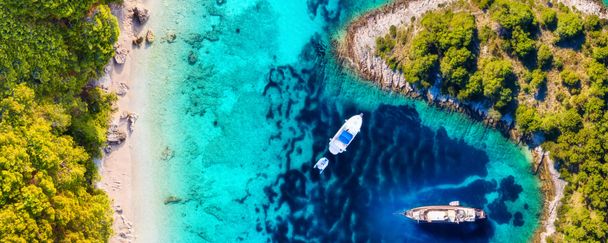Borrow A Boat’s ESG Policy
As boaters we all enjoy the beauty of the sea and being on the water probably more than the average person - but boating like many things can leave a footprint, and we have a duty to boat in a responsible and sustainable way to leave our waters in good condition for future generations.
And that is why Borrow A Boat in an industry first has launched our own Environmental and Social Governance Policy.
The first big piece of this is another industry first - our Sustainable Boating Guide in partnership with the World Sailing Trust. See below for more details.
- for fishing line to break down
600 years
- for plastic bags to break down
20 years
- for cigarette butts to break down
10 years

Borrow A Boat’s Sustainable Boating Guide
In this guide we have pulled together practical advice for boaters that will help you to go boating more sustainably. From anchoring safely, to refuelling, and greywater systems, see our guide below for real practical advice.
- The Natural World
The marine environment is a complex ecosystem from coastlines to seabed, vital to our world. As boaters, we must protect these delicate habitats from damage and pollution, ensuring our impact remains positive.
- Pollutants - Liquids
Prevent liquid pollution by careful refueling, using reef-safe sunscreen, choosing phosphate-free products, managing spills properly, and responsibly handling grey and black water. These practices help protect marine ecosystems from harmful contaminants.
- Pollutants - Solids
Combat marine plastic pollution by eliminating single-use plastics, minimizing waste, and practicing proper disposal. Actively remove plastics from waters and beaches, and prioritize recycling to reduce the impact of solid waste on marine environments.
- Physical Damage
Protect marine habitats by anchoring responsibly. Choose marked anchorages or moorings, avoid seagrass and coral areas, and prevent anchor drag. Proper anchoring techniques minimize physical damage to delicate underwater ecosystems.
- Wildlife Impact
Enjoy wildlife encounters responsibly by maintaining safe distances, slowing down, and keeping a consistent course. Avoid approaching animals from behind or in front, and don't disrupt groups to prevent stress and protect marine life.
- Emissions
Reduce your carbon footprint while boating by prioritizing sail power, using shore power when docked, and considering carbon offsetting for travel. These actions help mitigate climate change impacts on marine ecosystems, including ocean acidification and coral bleaching.
SUSTAINABLE BOATING GUIDE FOR CHARTERERS
We all love the beauty and majesty of the ocean and the awesome sealife within it - and we have a duty to ensure it stays this way for future generations - and that means we have a duty to go boating sustainably.
DOWNLOAD PDF GUIDE
“Here’s to happy boating, enjoying the beautiful ocean and its marine life in all its splendour, and let’s all leave the water as we would like to find it."

“Our playground is increasingly under threat and we should make sure we do not contribute to the problem. ”
From our Sailing Magazine
Read more on sustainable boating in our sailing magazine







